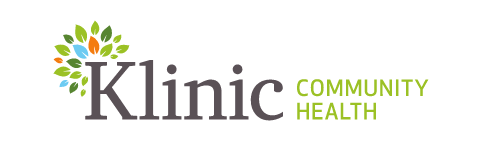Introduction to Recovery
This website on trauma recovery was developed by the Manitoba Trauma Information and Education Centre (MTIEC) with funding and support from the Province of Manitoba, Department of Healthy Living and the Winnipeg Foundation.
For an introduction to this website and how it might be useful to you, we invite you to view the following video:
Trauma is a part of the human experience. Trauma is unavoidable and is something we all have in common. Traumatic events can bring us together, and we can even grow out of trauma. Trauma is also the cause and at the heart of much human suffering and many of the problems that challenges our society today. Even though you might continue to struggle with the effects of trauma, you have survived and that took courage, strength, and resourcefulness. We suspect though that because you are exploring this website it means you want to do more than just survive and that in and of itself is hopeful.
Trauma is an injury that happens to us, it does not mean that there is something wrong with us or that we are bad it means something bad happened or was done to us. The resulting feelings you have are very normal. We hope that the information and resources contained within this website will be help you to better understand what you have experienced, make your path easier and nurture your sense of hope, meaning and purpose in life.
Each person experiences traumatic events differently. Many people affected by trauma may not yet realize all that has happened to them and how they have been affected. Others may want help but may not feel quite ready to ask for it. Many others may want help do not have access to it in their community or for a variety of reasons may be reluctant to use those resources. This website was designed for all, regardless of what has motivated you to visit us. Welcome.
This website is not therapy or intended to be a replacement for therapy or professional counselling services. There is no substitute for the benefits of a warm, face to face human connection, with someone who is caring, compassionate, has an understanding of trauma and who has access to specialized knowledge that can help your recovery. It is always our recommendation that whenever possible people who are affected by trauma seek help and support and not go through this alone. One of the common elements is the shame and secrecy that can often shroud trauma which can make it difficult to ask for help. The information in this website might help you prepare for therapy or even compliment therapy in which you are already participating.
We hope this website provides an understanding of what trauma is, how it affects people, and to present some ways of dealing with the symptoms of trauma. You will learn how trauma affects the mind, body, spirit and relationships. For example, we’ll provide you with information on how trauma affects the nervous system to create fight, flight, freeze responses so you can then use that information to learn how to calm yourself, to think more clearly and make better choices when you’re flooded with emotions. This website can also help those looking for ways to understand and help a loved one. Not everything here may apply to you so we suggest taking what is helpful and leaving what doesn’t fit for you. You are the expert on you and what is best for you.
A common after effect of trauma is to feel emotionally overwhelmed so keeping that in mind we suggest you pay attention to if you begin to feel uncomfortable or overcome by emotion. Go slow, go at an easy pace, take breaks – you are in control of this process. There are no medals for going quickly. You may have heard the myth that in order to heal from trauma the process is very gruelling and that things have to get worse before they get better – that is not true. The goal of trauma recovery is to relieve suffering, not to make it worse.
Throughout this website you will find information on how to soothe frightening and overwhelming emotions, how to calm yourself when you begin to feel out of control and how to become kinder and more compassionate towards yourself.
If through this exploration you need to talk with someone you can go to the “resources” section of the website and look up a distress line in your area. Counselors on distress lines and crisis lines are very familiar with the effects of trauma and are trained to assist you.
We hope you find this website helpful and we welcome your feedback. In the section called “Your Feedback” we are asking for your ideas input on how we can improve this resource. We would like to know what you found most helpful, what wasn’t helpful, what we missed.
Thank you
Klinic Community Health Centre
Manitoba Trauma Information and Education Centre
Next: What you need before you begin >


